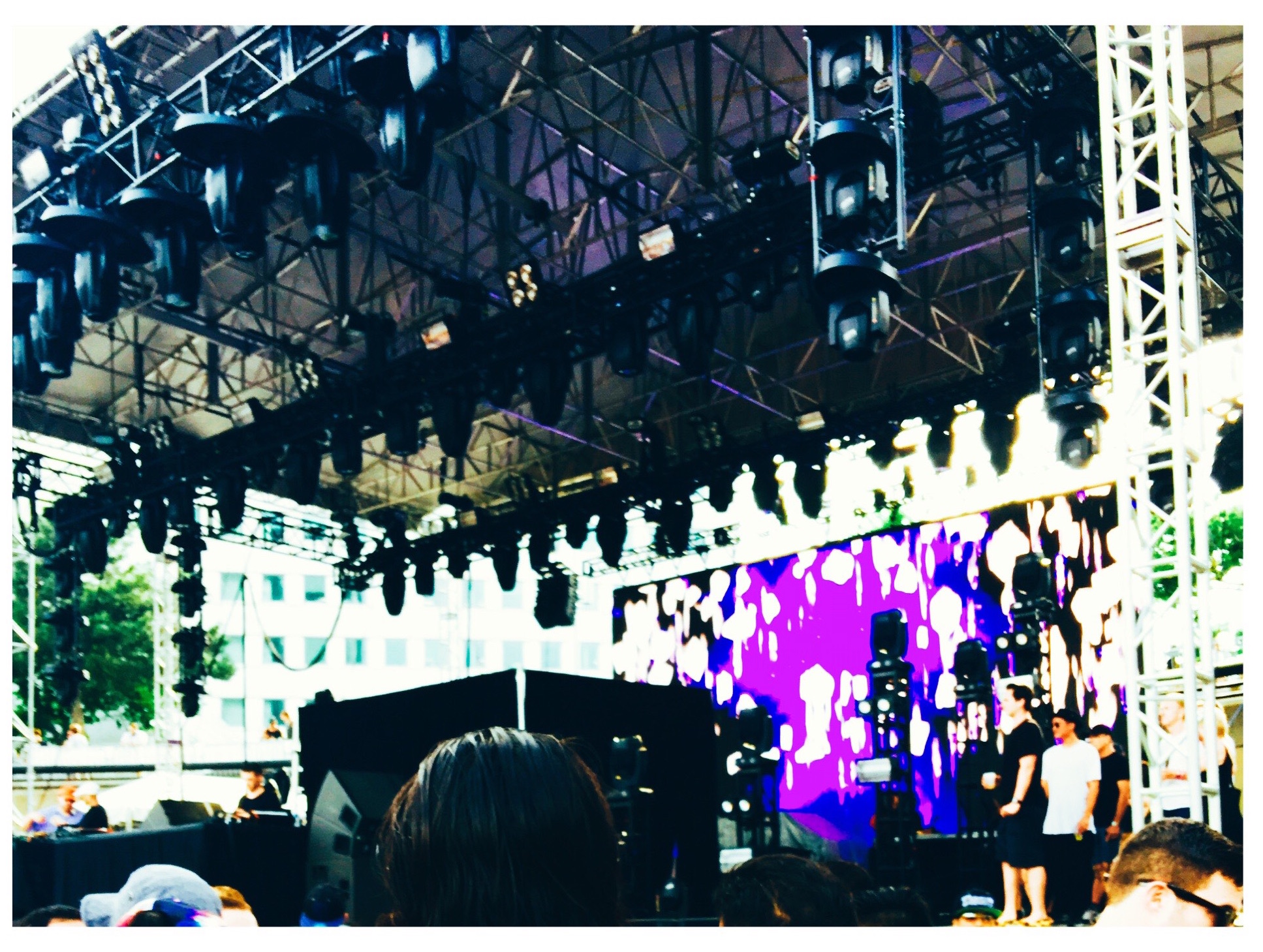Preparing for this weekend, I predicted there would be few hours of sleep and more moving of my two feet than I could stand. Both of those things were true. Since 2000, Detroit has hosted the grassroots festival that is now known as Movement, or the Detroit Electronic Music Festival. Prior to this year I had attended the festival, but this would be my first year attending as a resident of the city.
During previous visits my naïve perception deduced that the whole city revolves around Movement during those three days. The fact is you are still able to easily able to make your way down Jefferson Avenue; there is no closure in this literal sense or otherwise.
Despite the influx of attendees flocking from all parts of the map, there was no noticeable change in my routine. I did not notice any wristbands at Dilla’s Delights during my commute to coach soccer for Detroit Pal on Saturday morning, and despite quite a few wristband-wearing patrons, our wait at Dime Store for brunch on Sunday was shorter than usual – and by shorter I mean there was no wait. So how does Movement impact the city?
There is one obvious factor: tourism. Movement attracts an international audience, one that is large enough to create a significant economic footprint in the city. Sam Fotias, Vice President of Operations at event organizers Paxahas, stated, “We have a huge impact with restaurants and gigantic impact with hotels, taxis and Ubers.” In 2015, a Lyft Driver Ariana Baseman reported that an average weekend for her included 30 rides for a total toll of $300. During Movement she was able to net 60 rides in just 3 days making around $1,000.
The Lyft driver who shuttled me home on Sunday night from the festival shared his highlight reel of reveling riders over the past few years. Many of them had shared with him that they were pleasantly surprised by Detroit, and that it was not the city it was rumored to be. It is undeniable that since its inception in 2000, the festival has attracted an audience that would have otherwise never come to visit Detroit based on negative media coverage.
But with these clear positive outcomes, there is a glaring negative. As I sat facing the Detroit River on Sunday evening to the left of the Red Bull stage, I was surrounded by trash. Attendees had deemed the Riverfront their own personal garbage can, and this lack of personal accountability irritated me. The grounds were scattered with receptacles for trash and recycling, but patrons were too occupied to be bothered. The next afternoon I met with friends visiting for the festival who informed me that volunteers, and others employed by the festival, had been cleaning Hart Plaza until nearly 5:00 AM that morning.
Witnessing this careless behavior reminded me of my own assumptions about the festival before my residency. Would I have thrown trash around so carelessly if I knew I would return to New York, Los Angeles, or some other part of the world? No, probably not. But would I have notably been affected by the littering of others? No.
The impact Movement had on me this year was that we all have to do better. Movement is behind the curve of other festivals who have implemented sustainable practices like Bonnaroo’s recycling program, composting, and free water, or Burning Man’s “leave-no-trace” initiative. When visiting a city, and in your own city, be a responsible citizen. Regardless of the financial or status boosting elements of any event, it is important to be respectful, conscientious users of public spaces. There is value in enjoying the entertainment elements a city has to offer, but cities do not exist solely for the events they host.
*If you’re interested in some of the highlights of Movement’s History, read this article by Hour Detroit or checkout this oral history.

